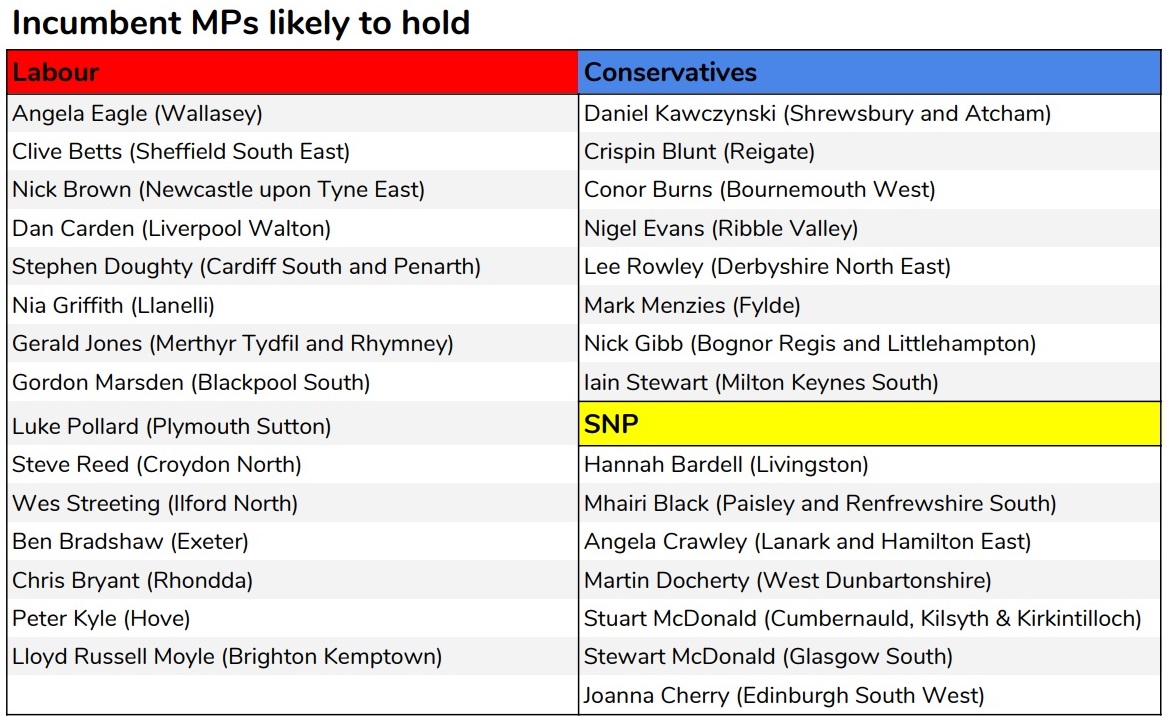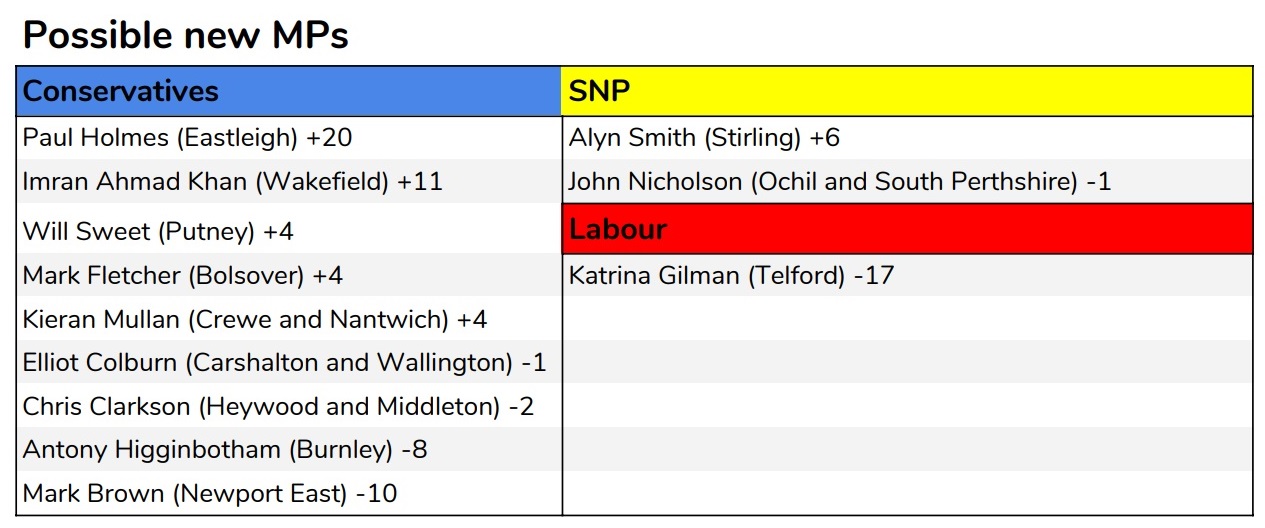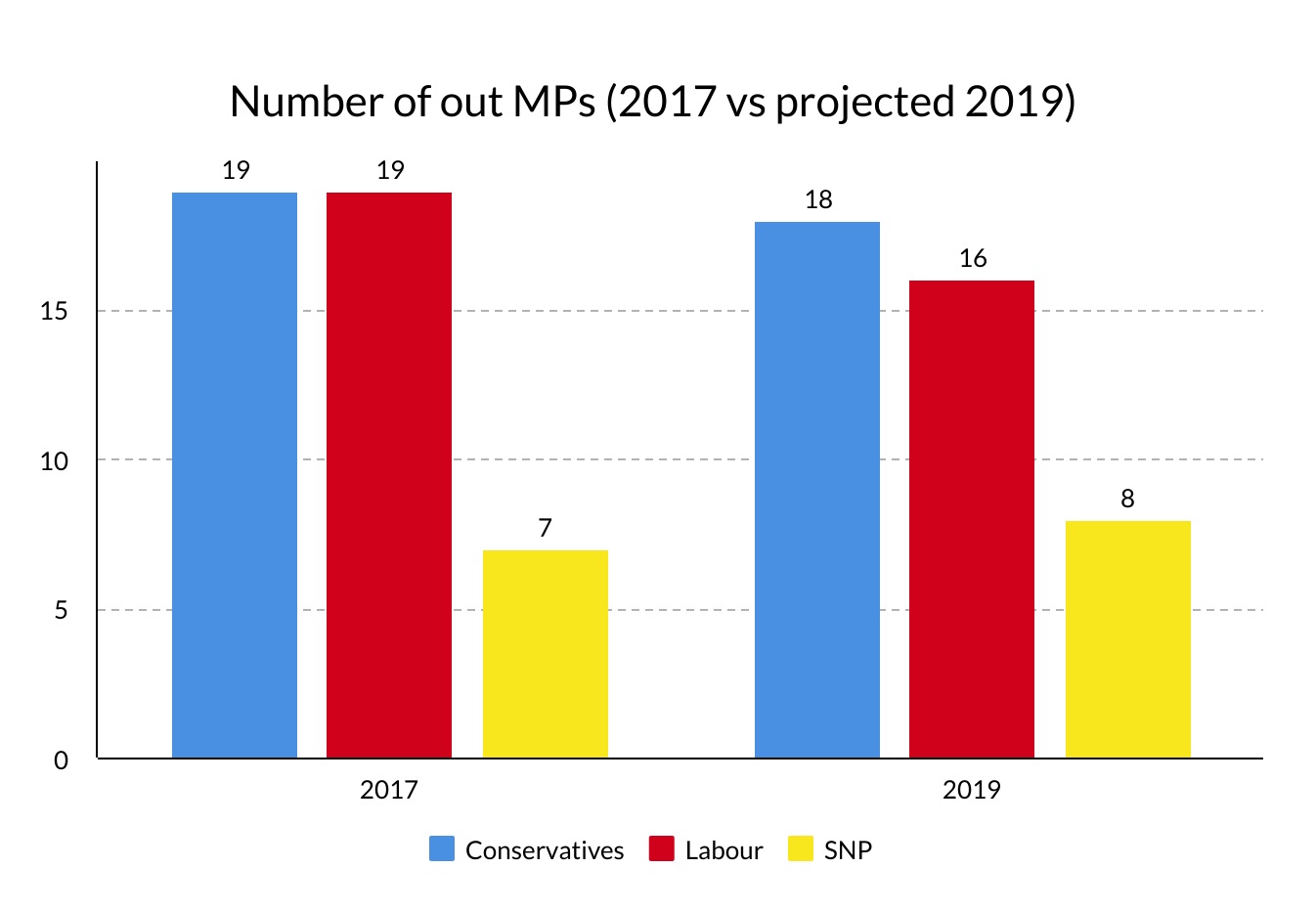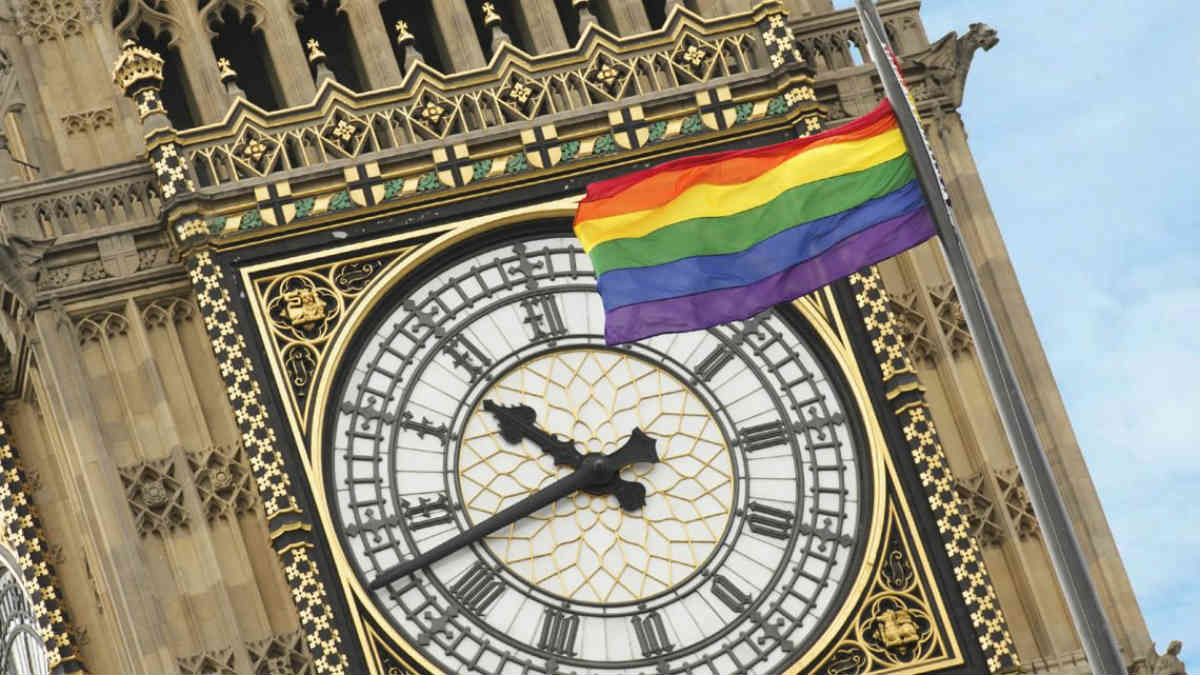Andrew Reynolds, author of The Children of Harvey Milk: How LGBTQ Politicians Changed the World, has forecast big changes to LGBT+ representation in parliament after the general election.
The last UK parliament had the highest representation of out lawmakers anywhere in the world, with 19 Tories, 19 Labour MPs and seven Scottish Nationalists identifying as LGBT+.
However, the scope of LGBT+ voices in the next parliament will be impacted by the Brexit whirlwind.
Six out Tories are standing down at the election – Justine Greening, Alan Duncan, Ross Thompson, Margot James, Nick Herbert and Nick Boles – alongside one Labour MP, Stephen Twigg.

Incumbent LGBT+ MPs are mostly set to hold on after general election.
Of the 38 remaining incumbents running, 30 are firm favourites to be re-elected.

However, three incumbent Labour MPs and five Tories are vulnerable to a challenge, according to YouGov’s MRP polling model.
Labour MP Ged Killen looks very likely to lose Rutherglen to the SNP, while Cat Smith and Sandy Martin have tough battles to hold Lancaster and Ipswich against the Conservatives.
For the Conservatives, Mike Freer and William Wragg face challenges from the Lib Dems; Stuart Andrew and Damien Moore from Labour, and David Mundell from the SNP – though robustness of the Tory vote bodes well for most of those MPs holding on.

New faces.
While established LGBT+ voices are leaving parliament, there are many out candidates with a chance to break through in the new parliament.
There are nine out Conservatives with a shot at entering parliament, two of which (Paul Holmes and Imran Ahmad Khan) are firm favourites to win.
Khan, the candidate in Wakefield, would be the first out LGBT+ MP from a BME background.

Alyn Smith, running for the SNP in Stirling, is also looking like a winner, while former SNP MP John Nicolson has a chance winning in Ochil and South Perthshire.
However, Katrina Gilman, Labour’s one LGBT+ target seat candidate, is a long way behind in Telford, and the SNP’s Paul Robertson also is looking at an outside chance in Banff and Buchan.
None of the transgender or non-binary candidates standing are likely to win, while the Liberal Democrats, which had no out MP in the last Parliament, will again be lacking an LGBT+ voice in the House of Commons.
As a whole, it is highly likely that the SNP caucus will increase (perhaps to nearly a quarter of their parliamentary party), Labour will decline and the Tories will stay steady.
The YouGov projections would put the Tories at 18, Labour at 16 and the SNP eight.

LGBT+ representation in the next House of Commons after the general election could be anywhere between 33 and 50 – but is much more likely to be between 39 and 47.
Andrew Reynolds is Professor of Political Science at UNC Chapel Hill. He tweets at@AndyReynoldsUNC.
